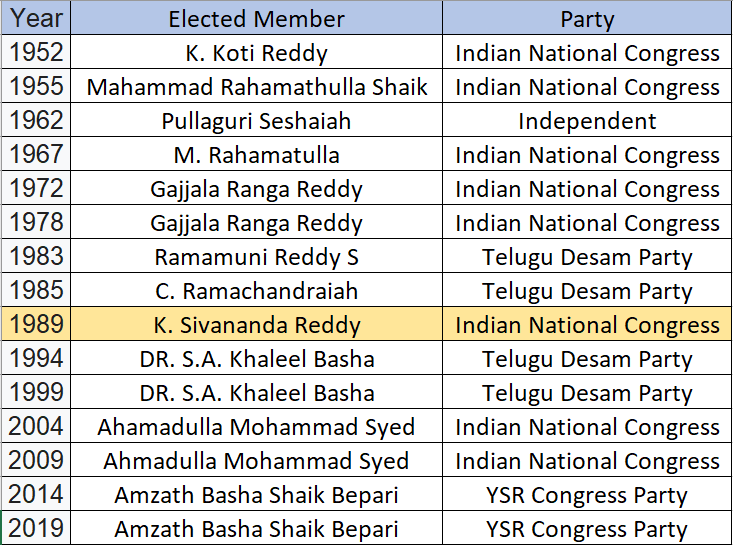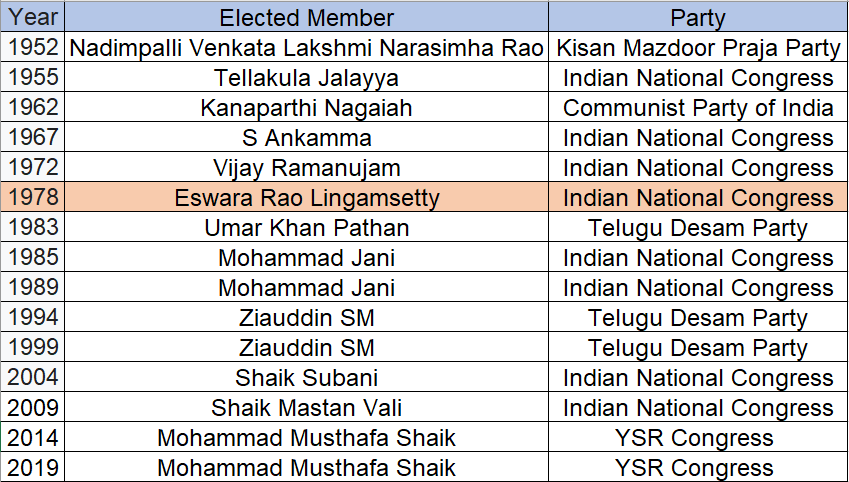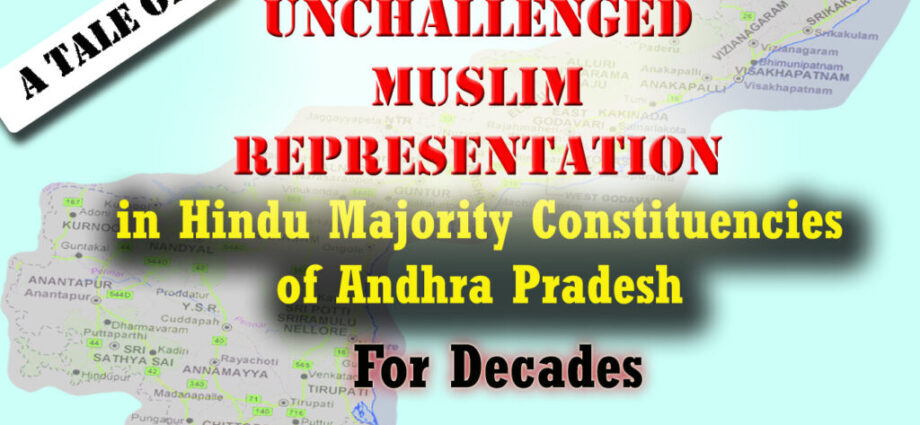In a democracy, everyone has the right to vote regardless of caste, creed, religion and language. But political parties identify voters based on caste and religion to estimate their chances of victory and apply the same formula for the selection of candidates. The ultimate goal of parties is to come into power by making their candidates win.
But in contravention to the above-said political formula in Andhra Pradesh, the two key constituencies where one group has been in the majority for more than 30 years, the minority group is taking over the power, which shows how weak the Majority vote bank is. Though Hindus are the majority in those two assembly constituencies, there is not a Hindu MLA for more than 30 years, and many times, Hindu candidates did not even contest. One is Guntur East Constituency, the closest urban area to the state capital. The other is the Kadapa Constituency, which is also famous as ‘Devuni Gadapa’ (the Entrance of the Tirumala God’s Premises ) in the Rayalaseema region.
K. Sivananda Reddy was elected from the Congress party in 1989 and can be remembered as the last Hindu MLA of the Kadapa Assembly Constituency. In the 1994 and 1999 elections, Telugu Desam Party’s candidate, DR. S.A. Khaleel Basha, was elected MLA. After that, Ahamadulla Mohammad Syed from the Congress party won as MLA in the 2004 and 2009 elections, and Amzath Basha Shaik Bepari from YCP won in the 2014 and 2019 assembly elections successively. In the 2019 assembly elections, only Muslim candidates from significant parties like Telugu Desam and YCP contested this constituency.

The condition of Hindu politicians belonging to significant parties in the Guntur East constituency is even more awful. For the past 37 years, the major parties have not even issued MLA tickets to Hindu candidates in the Guntur East constituency during assembly elections, even though Hindus are in the majority population. The area, which was the Guntur-1 constituency from 1955 to 2009, became the Guntur East constituency with some minor changes through the Parliament and Assembly Constituencies Redistricting Act of 2008.
In the 1983 assembly elections, NT Rama Rao of the Telugu Desam Party offered an MLA ticket to Umar Khan Pathan, and he won that election. Since then, it has become a trend for the main political parties like Congress and TDP to offer tickets to candidates from the Muslim community.
Following the political tradition, in the assembly elections held in 1985, the Telugu Desam Party gave a ticket to Sheikh Syed Saheb, while the Congress fielded Mohammed Jani. Both also stood as MLA candidates from Congress and TDP in the 1989 elections. Mohammed Jani from Congress and Ziauddin from TDP stood as MLA candidates in 1994 and 1999 assembly elections. In the 2004 elections, Sheikh Shubhani of Congress won against Ziauddin of TDP.
In the 2009 assembly elections, the newly formed Praja Rajyam Party adopted the same policy. Like Congress and TDP, their party also fielded a Muslim candidate in the election. In the 2014 election, Maddala Giridhar Rao contested from TDP but was defeated by Mustafa Sheikh of YCP by a narrow margin. The Janasena party, formed in 2019, has also fielded a Muslim candidate in this constituency. Indira Congress candidate Lingamshetty Ishwar Rao, who won against Janata Party candidate Abdullah Khan Mohammad in 1978, is still remembered by the people as the last Hindu MLA of Guntur East Constituency.

Clearly, political parties, who estimate their votes caste-wise and religion-wise, field their candidates accordingly to gain political gain and win the elections. But here, in the case of Guntur East and Kadapa assembly constituencies, it is noteworthy that the main parties are not even giving tickets to Hindus, who are in the majority. It is because of their lack of unity as they are divided by party & caste, and as a result, a majority vote bank is not developed.
If this situation continues and the same policy spreads to other assembly and parliament constituencies, there may not be representatives representing Hindus. And Hindus may not have political power. Power aside, at least not the opportunity.

